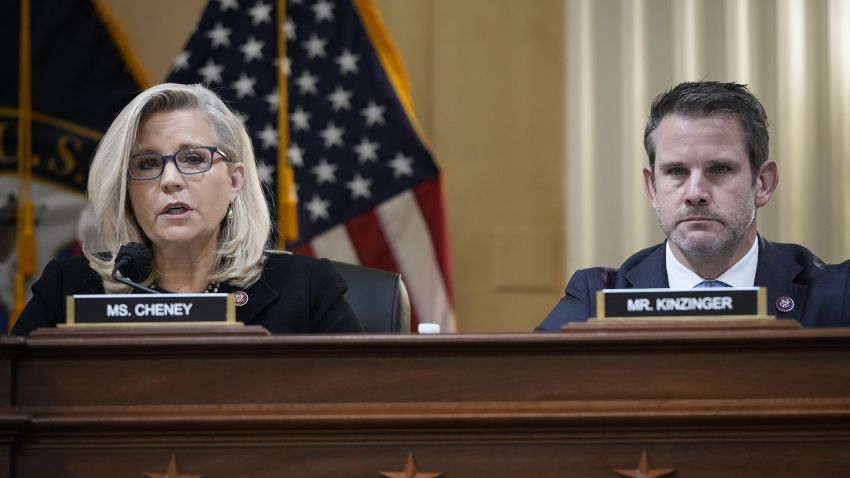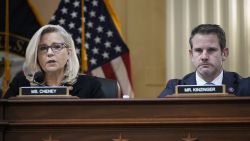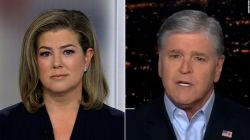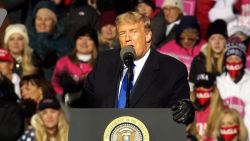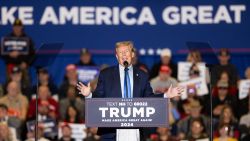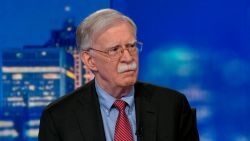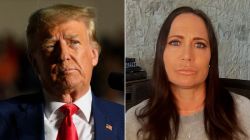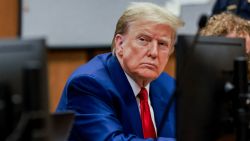In a resolution formally censuring GOP Reps. Liz Cheney and Adam Kinzinger, the Republican National Committee on Friday described the events surrounding the January 6, 2021 insurrection – which have been at the center of a House probe – as “legitimate political discourse.”
A copy of the resolution obtained by CNN claimed that the two lawmakers were “participating in a Democrat-led persecution of ordinary citizens engaged in legitimate political discourse” from their perches on the House select committee, which has conducted interviews with close to 400 individuals – from members of former President Donald Trump’s inner circle to organizers who helped plan the “Stop the Steal” rally on the morning of January 6.
The RNC, which condemned the “senseless acts of violence” in the immediate aftermath of the Jan. 6 insurrection, later Friday tried to clarify the inclusion of the term “legitimate political discourse” in the resolution. In a statement to CNN from Chair Ronna McDaniel, the committee drew a distinction between those who did not commit violence on Jan. 6 and the rioters who violently stormed the US Capitol.
“Liz Cheney and Adam Kinzinger crossed a line,” McDaniel said. “They chose to join Nancy Pelosi in a Democrat-led persecution of ordinary citizens who engaged in legitimate political discourse that had nothing to do with violence at the Capitol.”
Those final words – “that had nothing to do with violence at the Capitol” – were not in the resolution adopted Friday.
McDaniel on Saturday continued to try clarifying the language by circulating talking points to party members about the resolution, saying in part, “The RNC denounces all acts of political violence and lawlessness. However, the January 6 Committee has greatly exceeded its stated purpose of investigating the events of January 6.”
McDaniel’s note, which was obtained by CNN, also continued to attack Cheney and Kinzinger, saying the two were “giving Democrats cover to use this as a weapon advancing partisan political purposes.”
Following the RNC vote, Cheney tweeted a video depicting violent confrontations between rioters and the police outside the Capitol on January 6.
“This was January 6th,” the Wyoming Republican wrote. “This is not ‘legitimate political discourse.’”
The move to censure Cheney and Kinzinger, of Illinois, is unprecedented, and marks the first time the national party has rebuked an incumbent congressional Republican – much less two – with a formal censure backed by its members. When the resolution was introduced Friday to all 168 RNC members, it was described as a motion “to no longer support [Cheney and Kinzinger] as members of the Republican Party.”
Despite the resolution’s passage, there were a few vocal opponents in the room Friday.
“I think the whole censure thing is a slippery slope. Are we going to censure Marc Short for showing up to testify before the committee? Are we going to censure Mike Pence if he cooperates?” said New Jersey committeeman Bill Palatucci, referring to the former vice president and his chief of staff, who recently met with the House Jan. 6 panel following a subpoena.
Prior to the vote, RNC members pushed to have the resolution watered down to remove language calling for Cheney and Kinzinger’s expulsion from the House GOP Conference – a strictly symbolic measure given that the party does not have the authority to decide who does or does not serve in Congress.
“Some people felt it was too harsh,” said Jonathan Barnett, a co-sponsor of the resolution and Arkansas committeeman.
Cheney and Kinzinger have both played active roles in the House select committee’s probe of Trump’s activities before and during the riot at the Capitol last January. Their status as the lone Republicans on the panel has drawn scorn from fellow GOP lawmakers and party officials who believe they are enabling an unfair investigation led by congressional Democrats.
“This is not about dissenting views. This is about them helping [House Speaker] Nancy Pelosi,” said David Bossie, a Trump ally and national committeeman from Maryland, who drafted the original resolution seeking to oust Cheney and Kinzinger from the GOP caucus.
In a statement ahead of the resolution’s passage, Cheney said the punitive measure marked “a sad day for the party of Lincoln.”
Cheney’s team also criticized a separate deal struck by Wyoming GOP chairman Frank Eathorne and the national party that would enable the RNC to fund Cheney’s primary challenger, Harriet Hageman, using a longstanding party rule known as Rule 11. With help from high-profile donors, such as former President George W. Bush, Cheney recently reported a fundraising haul of more than $2 million over the final three months of 2021, giving her a significant edge over Hageman, who raised $443,000 over the same period.
“Frank Eathorne and the Republican National Committee are trying to assert their will and take away the voice of the people of Wyoming before a single vote has even been cast,” a Cheney spokesman said in a statement to CNN.
Palatucci said proponents of the deal to assist Hageman were likely emboldened by the overwhelming support they found among committee members for the censure of Cheney and Kinzinger.
“I think the censure thing was the secondary piece to lay the groundwork for the Rule 11 change,” he told CNN after the vote.
Several Republicans, including Utah Sen. Mitt Romney, the 2012 presidential nominee, have criticized the motion to censure Cheney and Kinzinger, who were among 10 House GOP lawmakers who voted to impeach Trump last year for his role in inciting the Capitol riot. .
“Shame falls on a party that would censure persons of conscience, who seek truth in the face of vitriol. Honor attaches to Liz Cheney and Adam Kinzinger for seeking truth even when doing so comes at great personal cost,” Romney said in a tweet a few hours before Friday’s vote.
This story has been updated with additional reaction and details about the RNC resolution and vote Friday.
CNN’s Jeff Zeleny contributed to this report.
